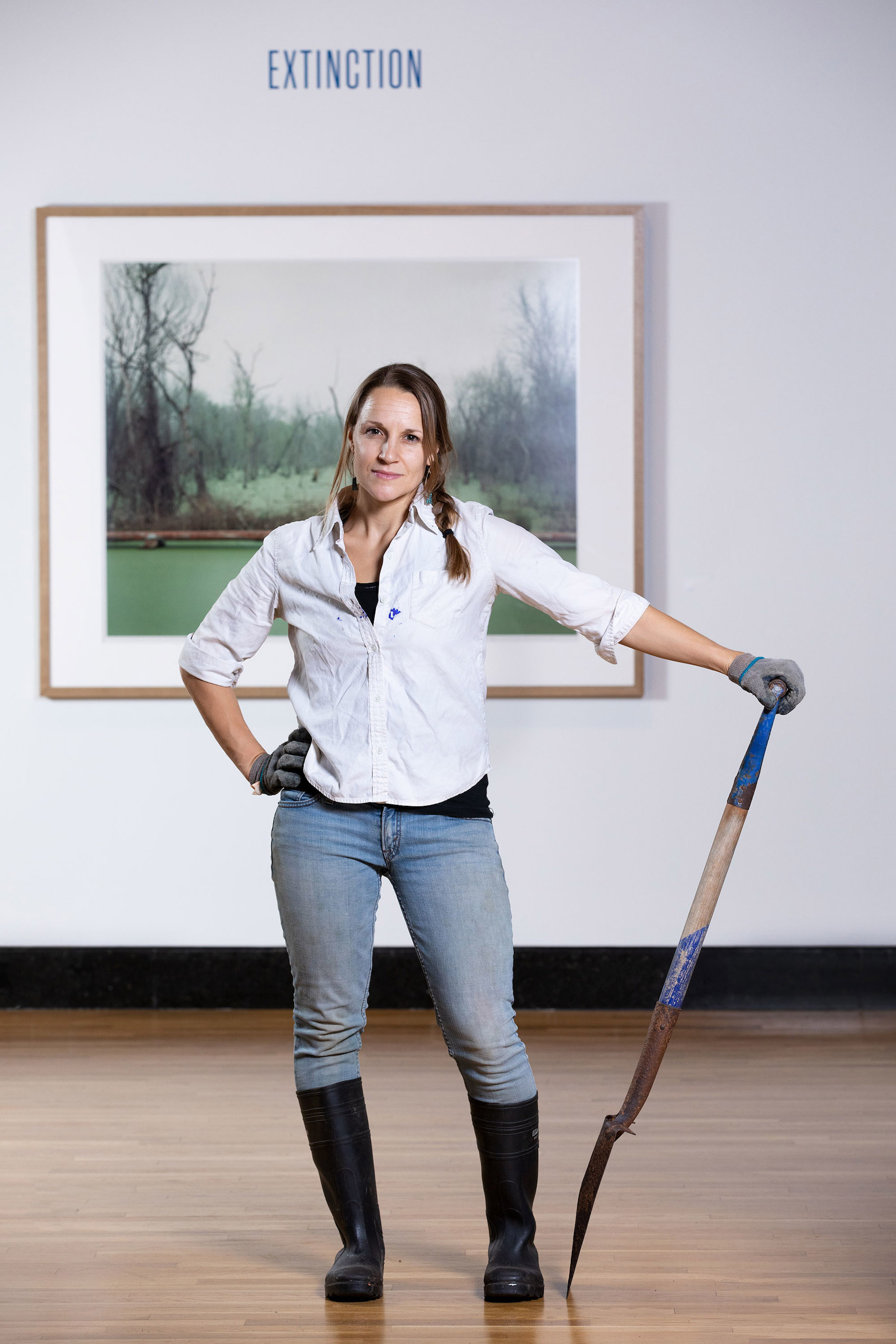“We’re not just here to dabble around. We’re here to answer questions.”
 Portrait by Brianne Lehan and Lyon Duong/UF Photography. Artwork: "Swamp and Pipeline, Cancer Alley, Louisiana" by Richard Misrach, 1998, museum purchase, gift of Dr. and Mrs. David A. Cofrin.
Portrait by Brianne Lehan and Lyon Duong/UF Photography. Artwork: "Swamp and Pipeline, Cancer Alley, Louisiana" by Richard Misrach, 1998, museum purchase, gift of Dr. and Mrs. David A. Cofrin.
Christine Angelini
Assistant professor, Engineering School of Sustainable Infrastructure & Environment, Wertheim College of Engineering
A college ice hockey player, she turned her penchant for teamwork and tough challenges toward science and has been working in coastal conservation ever since.
How do you describe your work?
Understanding and restoring resilient coastal ecosystems
What do you wish people understood?
Coastal wetlands can protect us from storms and algae blooms and support fishing and tourism, but they remain underappreciated, Angelini says. “A marsh is not a wasteland. A marsh is something that brings us tremendous value. Changing that perception and having us cherish these systems rather than abuse them and develop over them is a message I want to get out.”
What keeps you motivated?
“We’re constantly learning new things about how the environment is working, and to me it’s always fascinating. I’ll stay motivated by my own intrigue, but I also feel really compassionate — and passionate — about these systems because of how I’ve seen them degrade over my own time as a scientist, which has only been 10 years. I’m watching them change in front of my eyes.”
How do you stay optimistic?
“I’ve been working a lot more with managers here in Florida that are on the ground doing restoration activities. I almost think it’s the opposite of what’s happening in the political climate of divisions, of folks not talking to each other. There’s increased communication going on between scientists and managers where we’re able to do more science-based management and scientists are doing more research that’s relevant — immediately relevant — to management.”
The importance of getting muddy:
“I want to give my students a love of being in the field observing nature and having that inspire the work they do. It’s so easy to sit at a computer and not be in the mud interacting with the system they’re studying, but being in nature is really valuable for understanding it and getting it right. I never want to get away from those fundamental skills.”
What can we do?
“Every oceanfront owner should be a steward of the coastal dunes in front of their homes. Every person living on the edge of a salt marsh should do what they can to protect those systems. People who have docks can put out features that enhance their ecological value — they could be supporting oysters or enhancing habitat for fish.” For ideas, visit https://www.flseagrant.org/florida-living-shorelines/.
This is part of a series highlighting people at the University of Florida working to protect our well-being and the health of the planet, paired with works from the Harn Museum of Art exhibition “The World to Come: Art in the Age of the Anthropocene.” See more at ufl.to/theworldtocome.